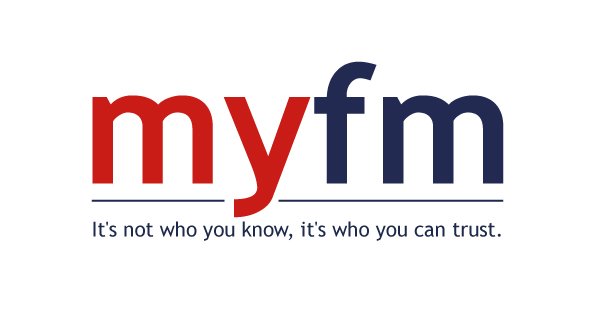Are you or your team making these common mistakes in Executive Search?
Executive Search involves coordinating with many moving parts - from identifying qualified candidates to conducting interviews to negotiating offers; even the best-run searches face a few challenges along the way.
It's not unknown whether it's a start-up or a legacy enterprise; the right team and leaders drive success for any business. And to acquire such talent who can perform efficiently, organizations needs a executive search expertise with the right intelligence and strategies that can approach leadership hiring in the best way and make the most prudent choice. But often, this is not as easy as it may sound, even with the best executive search team on board.
Executive search is different and challenging from the average hiring process and requires a different and more sophisticated recruiting skills. To conduct a smooth and successful executive search, it's imperative that you plan the process thoughtfully to avoid the common mistakes and obstacles.
We've outlined the most common mistakes that an executive search team can make while conducting an executive search along with the suggestions that can be considered to set it off.
Watch our video below, or alternatively, carry on reading!
1. Not knowing what you're looking for
The most common but most critical one - if you don't know what you're looking out for in a candidate during the beginning phase of an executive search, then how will you hit your ultimate goal of identifying, interviewing, and selecting the right professional for the position?
Companies can often make the mistake by straight away jumping into creating the job description and getting into detailing the job responsibilities and qualifications needed.
A better approach laid by experts is to start by aligning the critical roles and responsibilities and creating a success profile. A success profile helps focus on the candidate's soft skills, personal traits and strengths along with the demonstrable experience that’s required to be successful in that given role. Asking all key stakeholders, a simple question, "What will this position achieve?" will help you better understand how your organization will define success for the role and the obstacles that the new hire will need to overcome.
Discover here the 3 vital questions you must ask before hiring an expert
2. Expectations are not realistic
While having specific standards when hiring for executive hire is essential, setting the bar too high can make it more challenging. Recruiters should ensure their expectations are consistent with the realities of the market dynamics to avoid any frustration. For instance, don't expect an executive with 15 years of experience to settle for a mid-level salary.
Setting realistic expectations can ensure you find the right candidate within a stipulated period and with lesser resources. Ultimately, it helps reduce the chances of failure in the quest for an executive hire. It’s also critical that for achieving the desired outcome, the expectations are aligned. A candid discussion and a clear scope of work expectations can help accomplish this once you've skimmed down on candidates.
3. Organisational Fit
The organizational fit defines how well an individual's work style and work-related values sync with an organization's overall culture and norms.
When an organization assesses a candidate for a position, it must prioritize Culture Fit. By determining the culture fit, you'll be able to evaluate whether their values, beliefs and ethics aligns with those of yours. It is crucial to seek a proper culture fit by asking about the candidate's previous work cultures – which ones they felt challenged by or thrived in, or was it more of a struggle?
Your top candidates not only need to have the expertise to do the job well but also should be a cultural addition to your organization. The interviewer should review if the candidate can truly blend into their company environment. If the candidate’s personality doesn't align with that of your internal team, then things will not progress smoothly.
For companies to figure out if a candidate is motivated to do the job can call for a little more sophisticated probing. By understanding why candidates want to make certain moves in their careers and why they're interested in your role can help you paint a picture of their motivation.
A few good signals you can seek in the candidate during the interview are behavioural clues such as an organic, friendly conversation, a clear mindset about their career goals and forward-thinking etc. (a strong candidate will provide examples, context and straightforward answers.)
.
4. Taking too long to hire or hiring too quickly
Time is of the essence. If a position is open for too long, then you might lose good candidates, or people in the marketplace may begin to wonder if there's something wrong with the role or the company. Create a realistic timeline for your search and make a note of milestones like the completion of sourcing phases, interview dates and the required start date, induction etc. You might diverge from your plan but try sticking to it as much as possible during the search.
On the other hand, hiring last minute or hiring too quickly may defeat the whole purpose. Hiring for an executive position requires adequate time and preparation.
Note: Hiring firms sometimes wait until the last minute to start looking for a candidate, rushing the process. Because the hiring process requires 90-120 days, last-minute executive hires could possibly fail to meet your expectations and could cost your company unnecessary time and funds.
5. Lack of internal consensus before beginning the search
One of the reasons why organisations struggle is a lack of agreement on the top priorities in the search process. It is crucial for your recruiting team to read from the same script when hiring a top executive.
For instance, some may consider candidate experience valuable, while others consider educational background more important. A lack of consensus among the top members of the organisation can interfere with the hiring process. Aligning hiring priorities can prevent conflicts and can ensure the best candidates are placed before you.
What challenges are you worried about?
In short, the executive search can get challenging, and with the high cost of a failed executive search, companies can no longer afford to fumble the process. With increasing difficulty in finding skilled professionals to fill vacancies, businesses are choosing to partner with recruitment or franchise agencies over in-house recruitment.
Partnering with external experts can help you overcome the cost and talent complexities and streamline your hiring process along with keeping you abreast of the business’s best practices.
If there are challenges, you're worried about or want to know more about how myfm can help you find your next candidate, email us. We'd love to help! 😊
To get deeper insights on Executive Search Subscribe to our LinkedIn Newsletter.
Interested in getting more Facilities and Interim Management guidance for yourself and your teams?
Grab our fail proof PDF Guide for free here!





